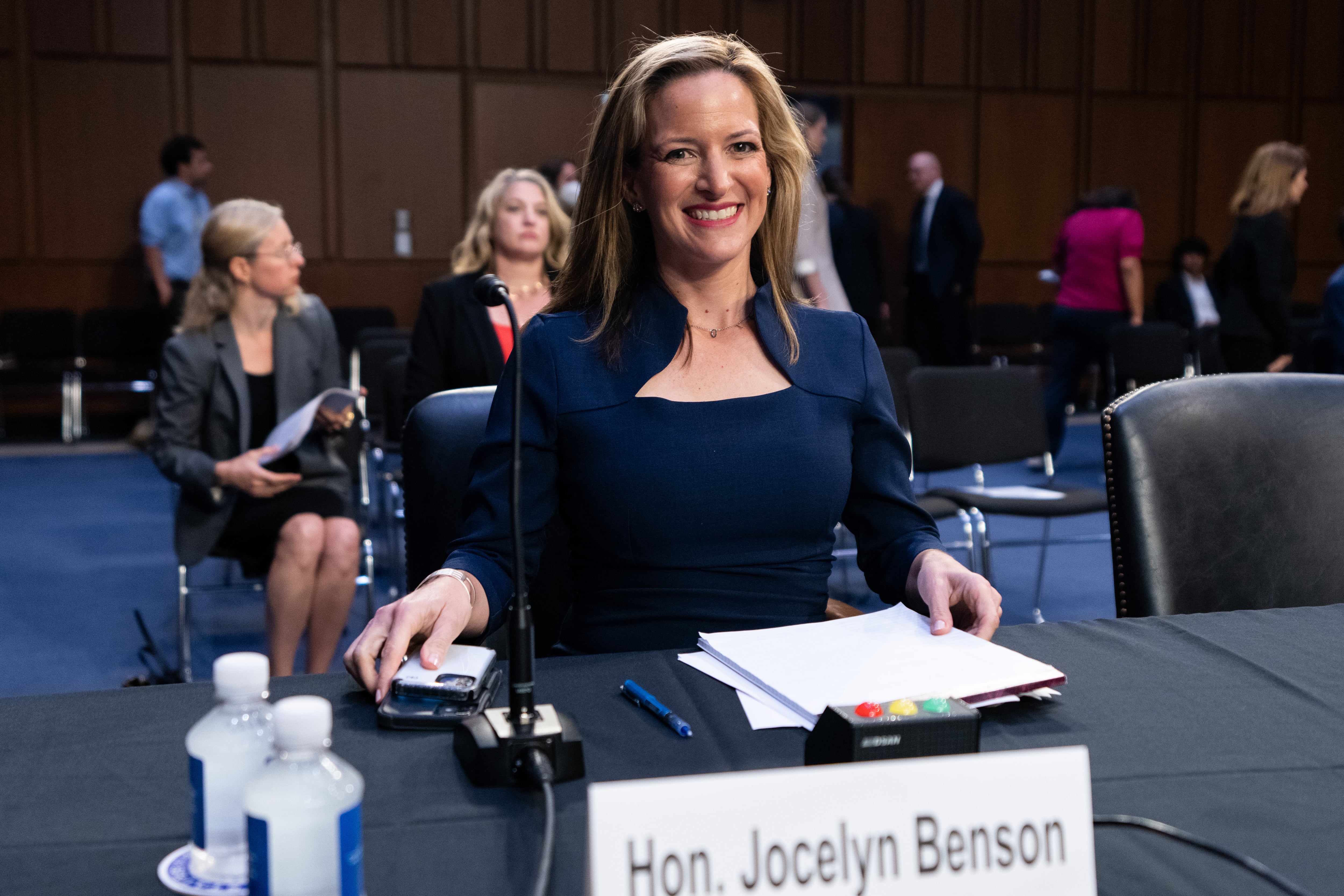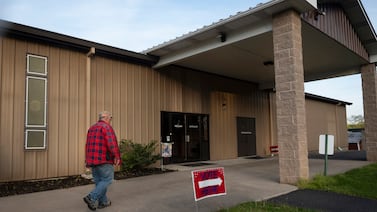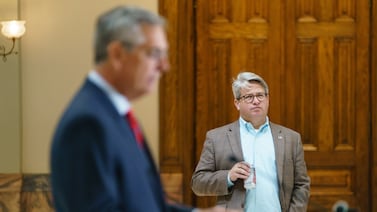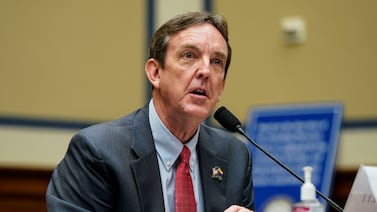Votebeat is a nonprofit news organization reporting on voting access and election administration across the U.S.
Michigan Secretary of State Jocelyn Benson is seeking as much as $45 million more in election funding from the Legislature this year to implement the main four provisions of Proposal 2, a package of voting reforms approved by Michigan voters in November. Those expansive provisions require nine days of in-person early voting and 2,000 ballot drop boxes at municipal locations across Michigan.
“We hope that you’ll work with clerks and our team to provide predictable, sustainable, and efficient funding of our elections,” said Benson during a meeting last week of the House elections committee, where she stressed the need to “fully” fund elections.
Lawmakers and clerks tell Votebeat they are optimistic about the amounts Benson says she’ll request, but are eager to see more detailed breakdowns of the proposed budget.
Harrison Township Clerk Adam Wit, who also is the president of the Michigan Association of Municipal Clerks, said his organization hopes to get guidance soon from the state.
“That’s pretty much all we’ve been talking about,” said Wit. “What’s it going to look like in the [Upper Peninsula]? What’s it going to look like in metro Detroit? You gotta make sure you design a system that accommodates everybody.”
Most clerks want to know how much funding will be available to implement a new type of early voting in their districts, allowing voters to feed their ballots into tabulators just as they do on Election Day. Previously, voters’ only option to cast an early ballot in person was to go to a clerk’s office to request and complete an absentee ballot and leave it to be counted during election week.
Currently, it costs city, township, village, and county clerks $100 million annually to run elections, about $20,000 per precinct. It will run about $30 million to $45 million more to implement the new voting laws, Benson told lawmakers at the Capitol Tuesday and Wednesday. Benson has announced generalized breakdowns: Her slides, for example, specified that $3 million will be allotted for mailing absentee ballot applications and ballots, and $12 million will be set aside to purchase more drop boxes, and to secure them, so that one is available for every 15,000 registered voters. Benson will also have to make a presentation to the Michigan House and Senate appropriations committees before her request for the money moves forward. A hearing before the appropriations committee has not yet been scheduled.
State Rep. Ann Bollin, a Republican from Livingston County and a member of the state House Appropriations Committee, wants a further breakdown of the money needed to pay for the changes mandated by Proposal 2 before she determines whether Benson’s request is enough to appropriately implement them, which she said should be the Legislature’s number one priority.
She echoed Benson’s sentiment that elections have never been adequately funded in Michigan, and said she hopes that changes this year. “For many years I’ve advocated for funding for elections, and it’s kind of bringing it to a head now with the passage of this proposal.
Bollin, herself a former clerk for Brighton Township, said she will ask Benson how she came up with the financial estimates of the amounts needed to meet the needs of larger cities like Detroit.
“I want to know how Secretary Benson arrived at that number,” said Bollin. “I can’t imagine $20,000 is going to go the same length in metro Detroit as it is in the city of Brighton, city of Marquette, city of Alma… different communities. What’s her number based on?”
Julie Mathiesen, the city clerk for the Upper Peninsula community of Watersmeet Township, said she was happy to hear Benson’s call for flexibility with the funding. While larger jurisdictions have the space and staffing to pull off the early in-person voting with a tabulator required by Proposal 2, Mathiesen, whose community is nestled in a pastoral setting of waterfalls and abundant greenery on the northeastern border of Wisconsin and Michigan, lacks both. She said she will likely share a rental facility with a nearby Gogebic County community that has around 1,300 residents, most of whom are registered voters.
That’s quite a few more than in Watersmeet Township, where Mathiesen said “less than a dozen” people cast ballots. Still, the voters in her community — a popular destination for snowmobilers — have asked to take part in early voting. Those voters, said Mathiesen, were very satisfied to vote early with an absentee ballot, and so the township will require far less in-person voting space than other places.
Wit, the clerk in Harrison Township, said that as the budget takes shape, clerks are researching early voting election systems in other states, hoping to learn from their work.
“This is a fundamental change to the way we address elections in Michigan,” he said, adding that the sooner clerks get guidance from the legislature and the governor, “the better we are.”
Oralandar Brand-Williams is a senior reporter for Votebeat. Contact Oralandar at obrand-williams@votebeat.org.
This article is made possible through a partnership with Bridge Michigan, Michigan’s largest nonpartisan, nonprofit news publication.







